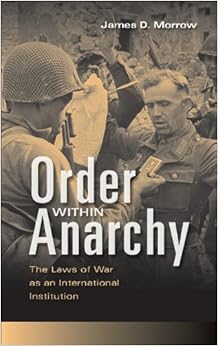 This book explores compliance with the laws of war, focusing on laws regulating the treatment of POWs, using theoretical models and empirical data. Governments take an instrumental approach to the law: they follow it when it serves their interest. The major way this can happen is if retaliation by the enemy is worse than any temporary gains from violating the law while the enemy follows it. Thus, a state may violate the law if (1) the law puts it at disadvantage and so it gains from disregarding it even if the enemy does as well; or (2) the law puts the enemy at a disadvantage so it cannot be expected to comply with it. Mutually beneficial cooperation can break down because the rules are unclear, but trying to get them precise in advance is difficult because of uncertainties about future changes in technology and the like.
This book explores compliance with the laws of war, focusing on laws regulating the treatment of POWs, using theoretical models and empirical data. Governments take an instrumental approach to the law: they follow it when it serves their interest. The major way this can happen is if retaliation by the enemy is worse than any temporary gains from violating the law while the enemy follows it. Thus, a state may violate the law if (1) the law puts it at disadvantage and so it gains from disregarding it even if the enemy does as well; or (2) the law puts the enemy at a disadvantage so it cannot be expected to comply with it. Mutually beneficial cooperation can break down because the rules are unclear, but trying to get them precise in advance is difficult because of uncertainties about future changes in technology and the like.
A good companion book is Isabel Hull’s A Scrap of Paper, which examines the laws of war during World War I. Hull also addresses the laws of neutrality, which create more complex strategic interactions than POW rules do. A belligerent wants to inflict as much harm on the enemy as possible, including interference with trade with neutrals, but up to the point where the neutrals themselves protest and may join forces with the enemy. The legal rules play an even more limited role than POW rules do. Neutrals have complex attitudes toward the belligerents, and some will tolerate violations of the law of neutrality by one belligerent because of their hostility to the other.
Hull is a historian while Morrow is a political scientist but the books tell a similar tale about governments’ instrumental attitudes toward international law. International law professors, who regard international law from a static, doctrinal perspective, and against all evidence take compliance for granted rather than as a problem that influences how the law is interpreted, could learn a lot from these books.